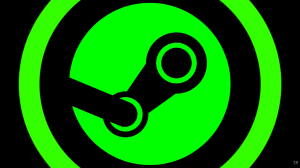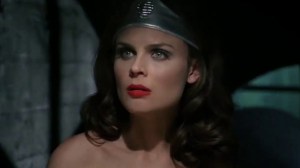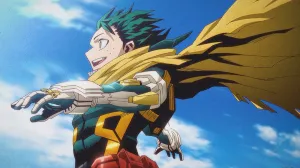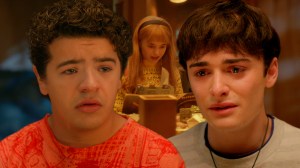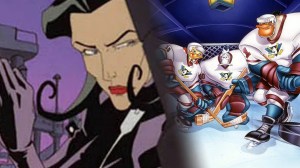Fantastic Beasts: The Grimes of Grindelwald is now in theaters, and while the box office opening for the film has been strong ($253M worldwide and counting…), the reviews have been harsh. Check out what we said in our own official Comicbook.com review of Fantastic Beasts 2:
Videos by ComicBook.com
“By the time the credits roll, The Crimes of Grindelwald bogs down audiences with its back-and-forth narrative, but it does lay the seeds for what’s to come. Fantastic Beasts is expected to fill out a five-film arc, and this latest installment begs some intriguing questions. Shocking betrayals, blindsided deaths, and repressed romances are just the tip of what this prequel has to offer; it’s just a shame The Crimes of Grindelwald petrifies its story in an effort to expand the Wizarding World’s lush mythology.”
That critique pretty much sums up something that’s now readily apparent: there’s a big problem with this new Fantastic Beasts movie franchise, and that problem is J.K. Rowling.
Let’s preface this discussion by saying: J.K. Rowling has been, and still is, a monumental talent when it comes to storytelling. Because of Rowling, an entire generation of children entered the new millennium loving to read books, when computers and TV were threatening to push novels and leisure reading out of the picture. Even now, more than two decades after the first Harry Potter novel hit shelves, Rowling is still a prolific writer and creator, and her “Wizarding World” is still capturing the imaginations of fans all over the world. She’s brought that same level of talent and imagination to both of the Fantastic Beasts films – and that’s exactly the problem.
It was no secret during production on any of the Harry Potter movies that J.K. Rowling’s imagination and penchant for world building was far bigger than what the confines of a feature-film could handle. It’s an issue that grew worse as Rowling’s later Harry Potter novels were adapted to film: die-hard fans of the books still complain that director David Yates’ movie adaptations of The Order of the Phoenix, The Half-Blood Prince, and The Deathly Hallows are disappointments, primarily because they cut so much rich material the books explored. Still, most people would agree that in order to make Harry Potter into a series of films, the rich mythology of the books had to be streamlined into compelling movie scripts that mainstream audiences could follow. Even if die-hard fans of the books were upset, those latter Harry Potter films were inevitably some of the most profitable and strong in terms of general audience reactions. In short, they were a necessary compromise between Rowling’s lush writings, and the leaner storytelling requirements of a successful film. Everything that Fantastic Beasts is currently missing.
Having J.K. Rowling be directly involved with the creation of this Fantastic Beasts film series seemed like a blessed gift, at the beginning. Rowling’s involvement brought an air of authenticity to the Harry Potter prequel saga, making it seem genuinely connected to the original series, and not just some attempt by Warner Bros. to keep cashing in. However, what was true during the Harry Potter film saga is still proving true now: J.K. Rowling’s talent for imagination, world-building, and characters is grossly oversized for the confines of a feature-film script.
This fact is readily apparent in the mess that is the story for Fantastic Beasts: The Crimes of Grindelwald. The film is saddled with an overabundance of character arcs (Gridelwald, Queenie, Tina, Credence, Dumbledore, Leta Lestrange, and even Newt Scamander somewhere in there…), as well as a whole bunch of mythology about the Lestrange and Dumbledore families, which is supposed to be the central crux of the story. Taken altogether, it is a bloated and confusing storyline for a film – something that many viewers have come away echoing. However, a lot of those same Potter fans would agree that Crimes of Grindelwald would’ve made a fantastic book.
Therein lies the truth of what needs adjusting, here: J.K. Rowling shouldn’t be writing new Wizarding World movies, she should be writing a full Fantastic Beasts book series. The very same need to get kids reading more still exists today, and a novel’s pages are clearly where Rolwing’s wonderful imagination truly flourishes and blossoms. There’s clearly an abundance of Fantastic Beasts mythology floating around her mind right now, and it deserves better than the disjointed and half-formed experience these films are delivering. With three more installments of Fantastic Beasts still planned, there’s still time to adjust the ship, and do this in the proper tradition of Harry Potter.
Fantastic Beasts: The Crimes of Grindelwald is now playing in theaters.

